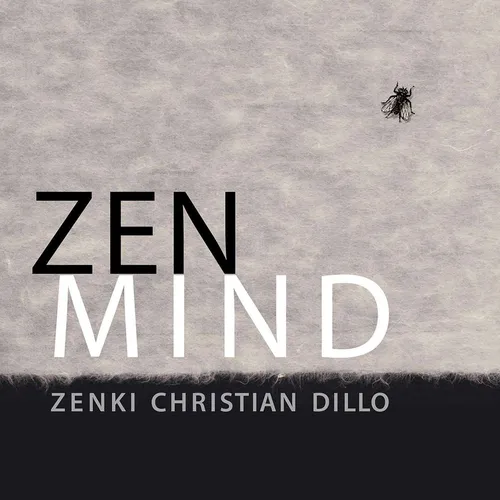
Zen Mind
Zenki Christian Dillo Roshi is the Guiding Teacher at the Boulder Zen Center in Colorado, USA. This podcast shares the regular dharma talks given at the Center. Zenki Roshi approaches Zen practice as a craft of transformation, liberation, wisdom, and compassionate action. His interest is to bring Buddhism alive within Western cultural horizons while staying committed to the traditional emphasis on embodied practice.
- Update frequency
- every 13 days
- Average duration
- 47 minutes
- Episodes
- 136
- Years Active
- 2019 - 2025

The Path of Nourishment
This talk looks at "nourishment" as the other side of suffering. When is an experience nourishing-independent of whether it is pleasant or unpleasant? The answer lies In the practice or completing th…

Working with Habits/Karma (Part 4)
What is enlightenment? And what is the relationship to habits and karma? This talk examines what the words "enlightenment," "awakening," and "realization" point to. It presents a "practice of enlight…

Working with Habits/Karma (Part 3)
Using the koan of "Baizhang's Fox" (Case 8 in the Book Serenity), this talk asks about the Middle Way of being simultaneously free from and entangled in the world of karmic patterns. We are free from…

Working with Habits/Karma (Part 2)
Transformation through Buddhist practice includes changing our habits/karma. Karma refers to the patterns in our life that emerge from repeated intentional action that, through the repetition, gets a…

Working with Habits/Karma (Part 1)
Transformation through Buddhist practice includes changing our habits/karma. Karma refers to the patterns in our life that emerge from repeated intentional action that, through the repetition, gets a…

Compassion in Disagreement
This talk takes up a question many people ask these days in the face of political polarization and climate change denial. How can we have compassion with those we disagree with? Usually, we try to es…

The Precepts and the Three Poisons
How can we use the 16 Bodhisattva Precepts to study our own experience and transform it? Buddhism tells us that the root of unwholesomeness (harm, evil) in our own experience is the Three Poisons: gr…

Focus and Field
This talk is about exploring the basic practice instruction of shifting from the focus of attention to the field of mind and back and forth. The practice, applied in all six sense fields, reveals a b…

Just Sitting
The fundamental instruction of our school is "Just Sitting." This "just"—not limited to the sitting posture—means to allow your experiencing to be exactly what it is at this time. Now. Such non-inter…

More Real Than Reality
How can you be you yourself? "Being you yourself" implies there are ways you can lose yourself. The antidote to losing yourself is mindfulness practice, which reveals a basic structure of immediacy: …

Homeless Home
This talk was given as part of the "Inaugural Weekend Sitting" that marked the transition of the Boulder Zen Center to an urban residential practice center. It uses the feeling of "homelessness" and …

Momentariness, Bodyfulness, Kindness
This talk starts out discussing "identification" and "personal identity" as a kind of defense against the groundless, momentary, and insubstantial nature of our existence. It then presents a set of p…

Emotional Freedom
The pandemic brings out emotions in us: anxiety, sadness, anger, impatience, worry, etc. This talk discusses the "anatomy of emotions" by distinguishing the sensation level from the interpretation le…

Doing Something About Suffering
Suffering = Pain x Resistance. When pleasure and grasping are included, the formula can be rendered as: Suffering = Experiential Intensity x Reactivity. This opens up two pathways to end suffering: r…

Groundlessness and Vow
This talk is about how we use narratives as support for personal and collective identity and how the current societal conditions challenge our stories and can leave us with a feeling of groundlessnes…

Not Transcending Our Humanness
This talk is about the difference between healthy and unhealthy transcendence. Meditation practice and the concept of detachment can create the fantasy that we might be able to transcend our humannes…

Racism and the Resonant Body
This talk, originally given to a Zoom audience of white people, acknowledges the intensity of this moment in American history: a convergence of the COVID-19 pandemic, economic collapse with 40 millio…

Noticing Without Thinking About
This talk gives Zazen instruction for disentangling attention from thinking. The koan story of Baizhang’s Wild Ducks (Case #40 of the Blue Cliff Records) is brought up to clarify the attentional body…

The 10,000 Things and I Share the Same Body
This talk continues the exploration of impermanence, momentariness, and insubstantiality—all aspects of what Buddhism refers to as emptiness—and adds the aspect of interdependence. It highlights the …

Momentary and Insubstantial
This talk articulates impermanence as momentariness and insubstantiality, continuing the discussion of the practice of impermanence from last week. To investigate and enact our experience as both mom…